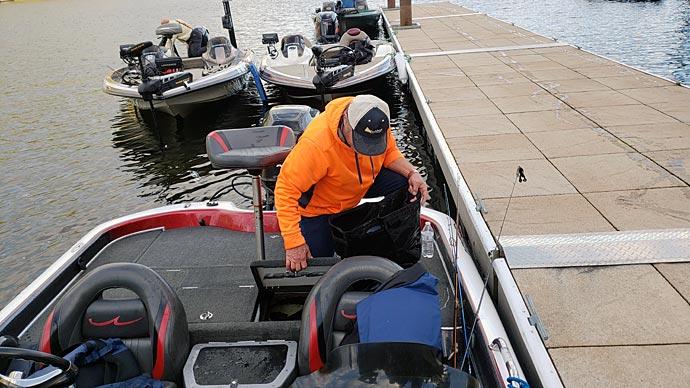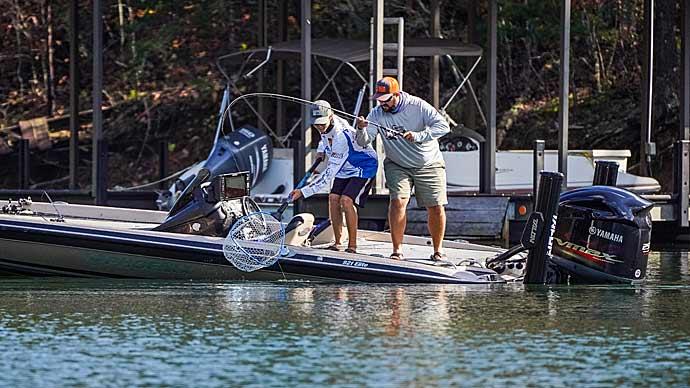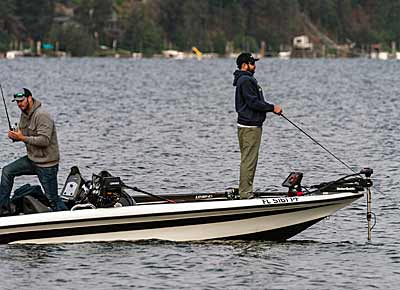
One of the best ways to get your first taste of tournament bass fishing is to sign up as a co-angler, often referred to as non-boaters of backseaters. Fishing this way is a great way to get started with tournament fishing, as it is often a much less expensive way to enter. The best part is that no boat is required.
As you prepare for your next tournament as a co-angler, keep a few things in mind to ensure you get the most out of the experience.
Keep an Open Mind
When you enter a tournament, your competitive juices are sure to flow, and winning or cashing a check often becomes the goal. Sure, winning money from fishing is exciting, but learning and getting better at fishing is just as valuable.
Paying attention to how your boater is fishing will allow you to learn new techniques and see how someone else makes decisions during the day and how they position the boat. These lessons are invaluable and will help speed up your learning curve and make you more successful if you decide to move to the front of the boat in the future.
Going into the event with this mindset also allows you to relax and take it all in.
No Bad Draws
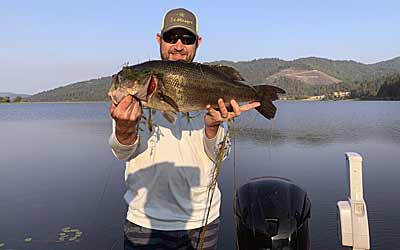
If you are fishing in a tournament with random partner pairings, you never know what you will get in terms of your partner. Some boaters you draw will have things dialed in, and you will be on fish all day long, and catching them is the only thing you have to worry about. Others may have limited experience or haven't found any productive waters. Both of these situations will happen to you if you fish long enough.
While your fishing success may hinge on your partner pairings, there is no "bad draw," as you can learn something every day on the water. Even the most challenging days on the water without catching fish could be a valuable learning experience. Even seeing poor fishing and decision-making from your boater can turn into something positive, as you may be learning what not to do in the future.
Fish Your Strengths
When fishing as a co-angler, one of the biggest traps you can fall into is trying to fish precisely like your partner. Sure, there are times when the cover or the way the boat is positioned forces you to fish a certain way, but trying to fish with a different technique is often your best bet.
A good example would be a boater fishing a reaction bait such as a topwater or spinnerbait. The front angler will hit obvious targets and usually catch the most aggressive fish first. This is where it pays to mix it up and show the fish a different look. Whether it is a smaller bait, different color, or something fished closer to the bottom will up your odds.
Trying to match your boater cast for cast with a similar lure hardly ever works out for the angler in the back of the boat, so it helps to fish differently. Even opposite tactics, such as fishing to the other side of the boat, will give you unpressured fish and increase your chances of catching more.
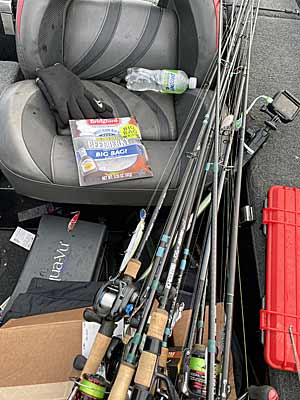
The same can be said about fishing, what you have confidence in and like to do. Fishing as a co-angler allows you to learn new techniques from someone who does it well, but sticking to your strengths can pay off and ensure success for the day.
Respect and Communication
The following may seem like common sense, but as an angler who has competed in hundreds of tournaments from both the front and the back of the boat, it is not as common as one would believe.
The biggest complaint from boaters is generally about how co-anglers treat their boat. Some co-anglers do not treat the boat with respect, whether stepping on seats or leaving a mess after the end of the day. Some common courtesy goes a long way and will ensure that your day goes well and that you will be welcomed back on the boat the next time.
Communication is another crucial issue when hopping on a boat with your boater for the day. Some boaters will have preferences and even boat rules for everything from netting fish to casting. Asking upfront if there are any specific things you should do in their boat is a good practice and will open a line of communication. Do this immediately when you meet in the morning, and you'll be on your way to a fun day on the water.
Gas Money and Other Costs
What would the co-angler article be complete without some discussion on gas money? This is an oft-debated topic online and among anglers about how much money is right. Gas is expensive, and that is just the tip of the iceberg for the costs of boat ownership.
Chipping in some gas money will help cover a percentage of the boater's expenses and ensure you are welcomed back the next time you are paired up. Some boaters will decline the offer of money, but it helps to offer something to help offset the costs of the day. The same goes for any boat launch fees, ice for the cooler, or other expenses from the day; covering these extra costs, chipping in, or at least offering will be greatly appreciated by your partner.
Fishing as a non-boater is a great way to get started with tournament bass fishing as it is less expensive and allows you to show up and fish. Going in with an open mind and with the expectation of having fun and learning is the best way to approach your next tournament as a co-angler.


